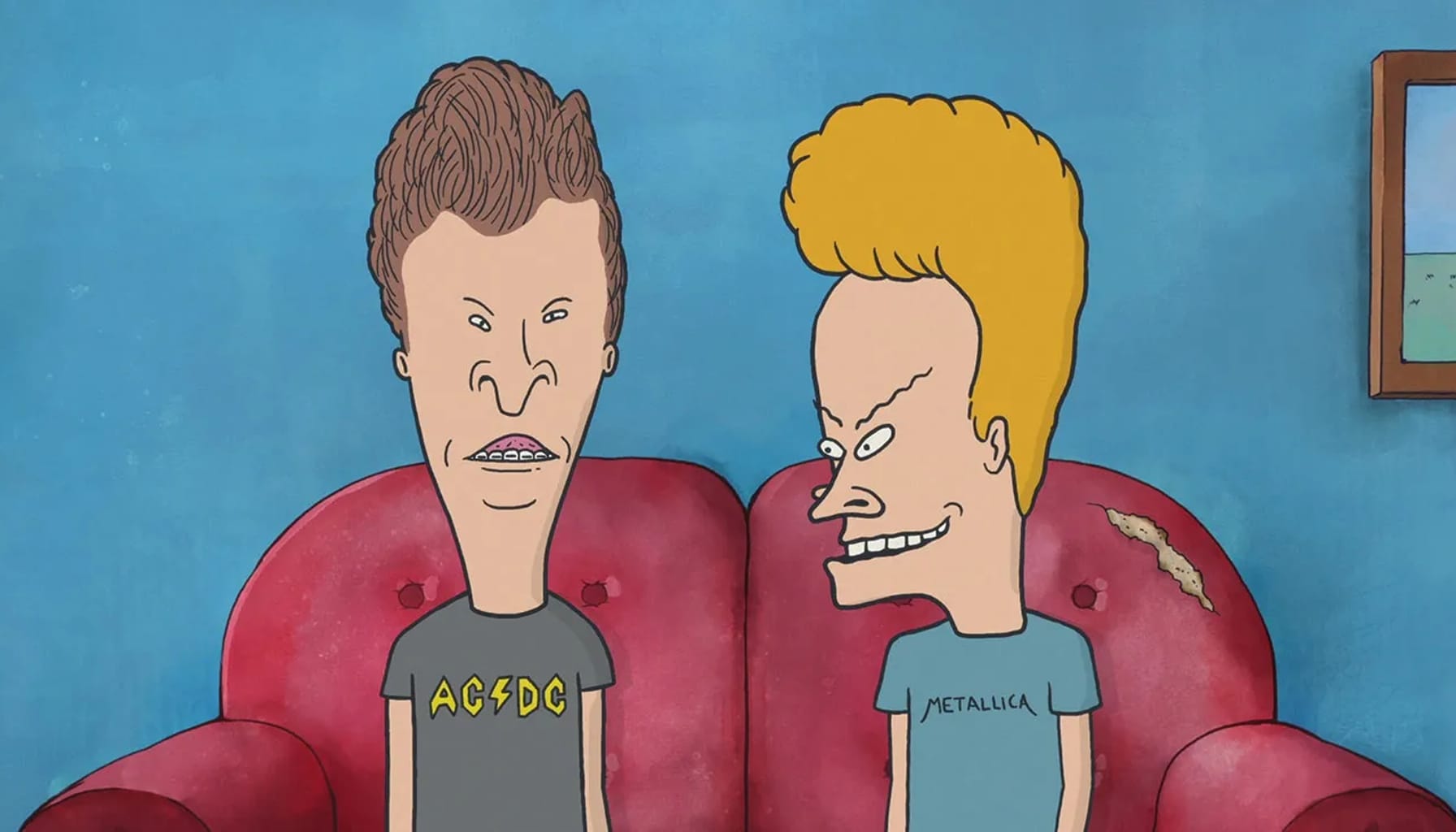Did These Kids Murder Power Pop?
When does a musical genre "die"? And is it possible for a couple of cartoon characters to kill it?

It will most likely not surprise you that my social circle is largely occupied by people who are — like me and probably like many of you — more than happy to get into lengthy conversations about all manner of pop culture arcana, from mostly forgotten bands to mostly forgotten movies and everything in between. Why, just yesterday I was part of a long text thread that was partly about the Journey spinoff group the Storm, partly about various second- or third-tier Bay Area vocalists, and partly about the 1982 Barry Bostwick movie Megaforce.
That movie is horrible, but it isn't what I'm here to discuss. I'm actually here to discuss a different conversation — one that led off with someone claiming that power pop, as a subgenre, was "thoroughly murdered by Beavis and Butt-Head" when the sniggering cartoon duo spent a couple of minutes dunking on the video for the Grays' "Very Best Years."
My take on this is that it's a pretty silly argument, not least because as far as mainstream trends are concerned, power pop has been dead for most of its existence. Setting aside the odd hit from acts like the Raspberries or Cheap Trick or the Babys/etc., this is cult music that has more or less always existed on the commercial margins; to be heralded as a power pop genius is to be consigned to a fate that involves indie labels, solo acoustic tours, and — if you're lucky — occasionally having one of your songs covered by someone else on an album that sells more copies than anything you've ever released put together. (That last one will forever be known as the Nick Lowe Gambit.)
The best power pop artists are discussed in reverent tones by true believers. Their best releases are often out of print and traded via fan communities. Their careers are discussed the same way you'd tell a friend about a friend or loved one who died under tragically unfair circumstances. Ever has it been thus, even during the music's "heyday," so the idea that things were somehow ruined by Beavis & Butt-Head being unkind to a song that is at best power pop adjacent strikes me as a lengthy stretch. Also, if you love power pop, you know there's a long list of outstanding acts and albums that arrived after the Grays did their (extremely brief) thing.
Anyway, this is all the stuff of deeply dorky conversations among impassioned music fans, and I could go on, but what's more interesting to me is the idea of a "dead" genre. It's slightly more preposterous in 2024, when digital distribution has long since atomized every audience to the extent that every damn thing is niche anyway, but I'm not so sure there's ever been any such thing. Genres have surely fallen out of fashion, and sometimes fallen hard — case in point: the musical witness protection program that the Bee Gees entered between 1983 and 1987 — but they've never really gone away. People have never stopped loving classical, or jazz, or vocal groups, or the blues, or disco, or classic rock, or hair metal, or... you get the idea. These things have their place in the sun, and then it's something else's turn. But they don't die.
As Ned Raggett put it in his most recent "Some Weekly Music Thoughts" column regarding the long-debated "death" of rock, "It's not that rock is dead, it's that rock isn't the center and the only thing and shouldn't be thought of that way." More than ever, we're trained to think of it in terms of primal, zero-sum primacy, but no matter how much it might feel like pop culture is shaped like that, it doesn't function that way — especially not now, when so many of the gatekeeping monocultural mechanisms have either rusted into uselessness or been "disrupted" to death.
Maybe I'm looking at this the wrong way, or maybe I'm just strange, but for me, for the most part, the things I've most deeply engaged with have stood on commercially tenuous ground. This is absolutely not to say that my tastes have ever run toward the avant garde — far from it — but it is to say that I think it might be easier to have a truly personal response to something if you don't necessarily feel like you're sharing it with millions upon millions of other people. And even if that doesn't hold true for you, I would also argue that a passionate niche audience is just as indicative of cultural life as platinum sales or a Top 10 chart placement.
Anyway, power pop lives. To celebrate, here's the long out of print Jellyfish box, Fan Club, which I believe bears the distinction of being the first release shared with me by my dear pal Jason. While you're digging all four discs of this majestic thing, I'll be off re-purchasing the Wondermints catalog so I can share it the next time we talk about this stuff.


